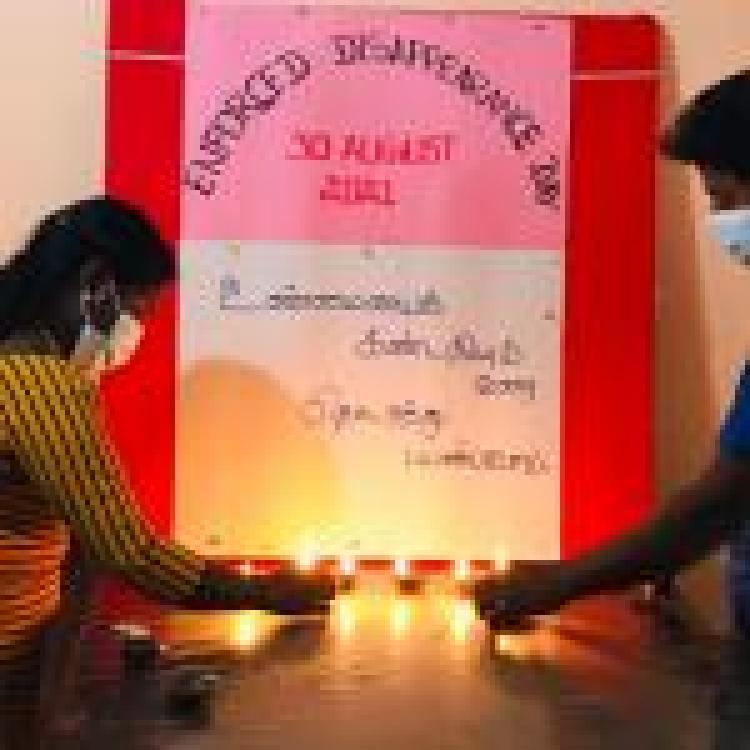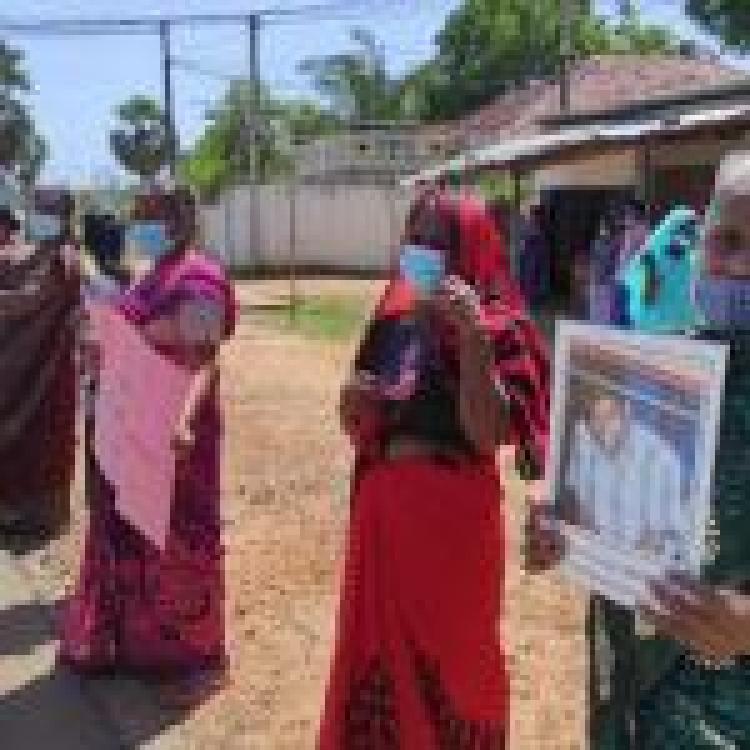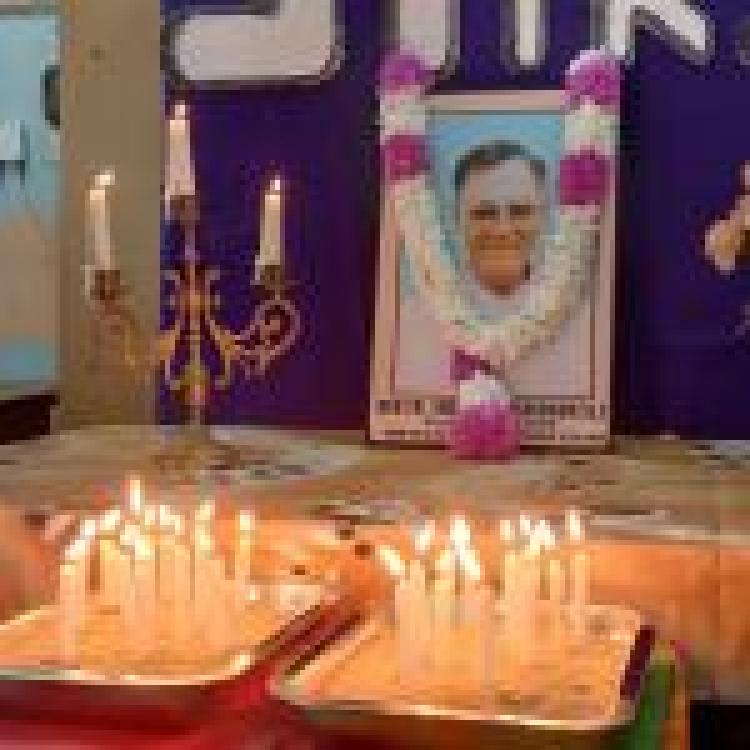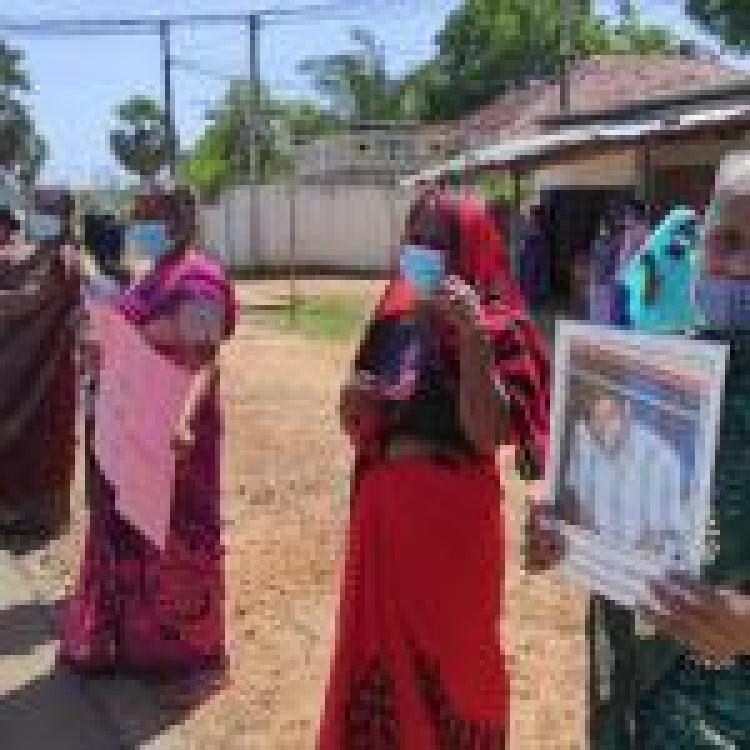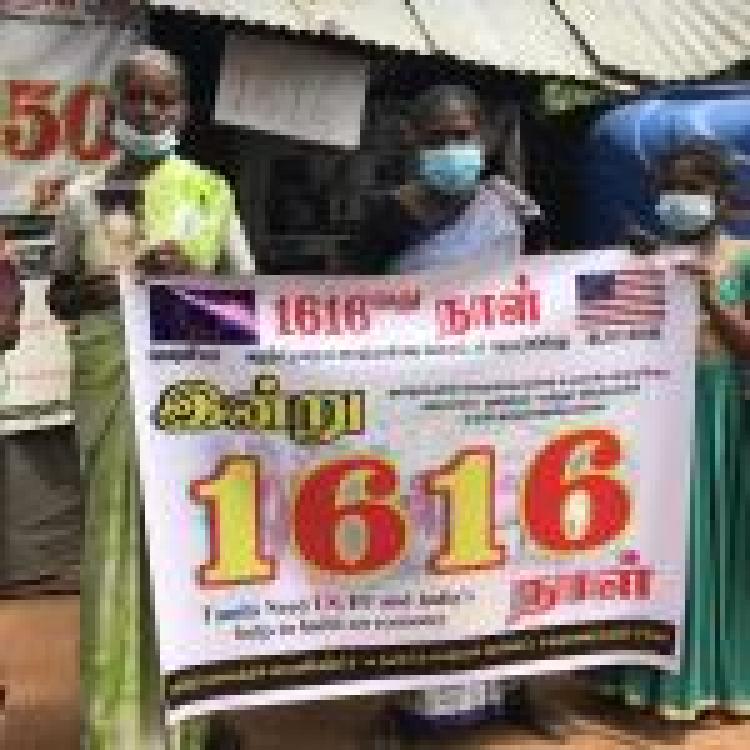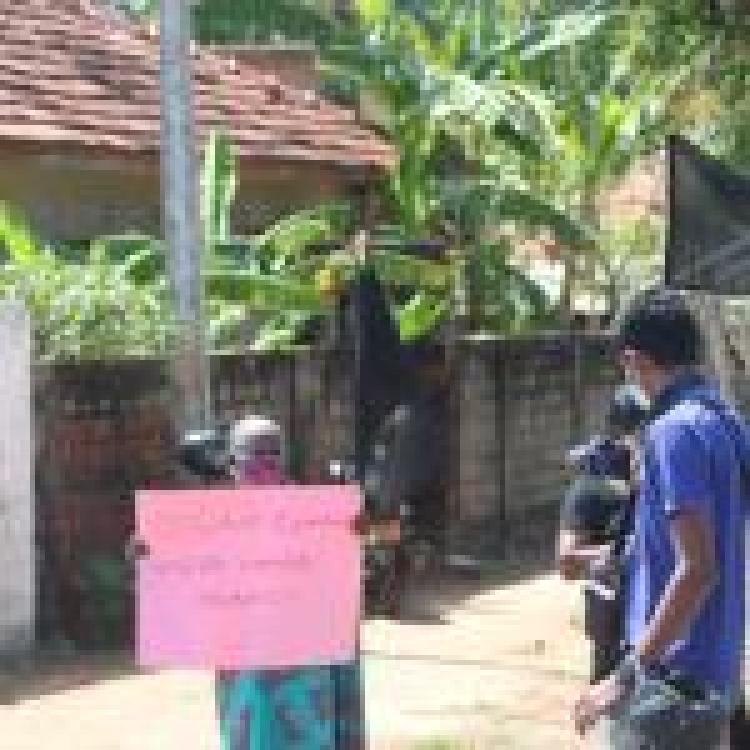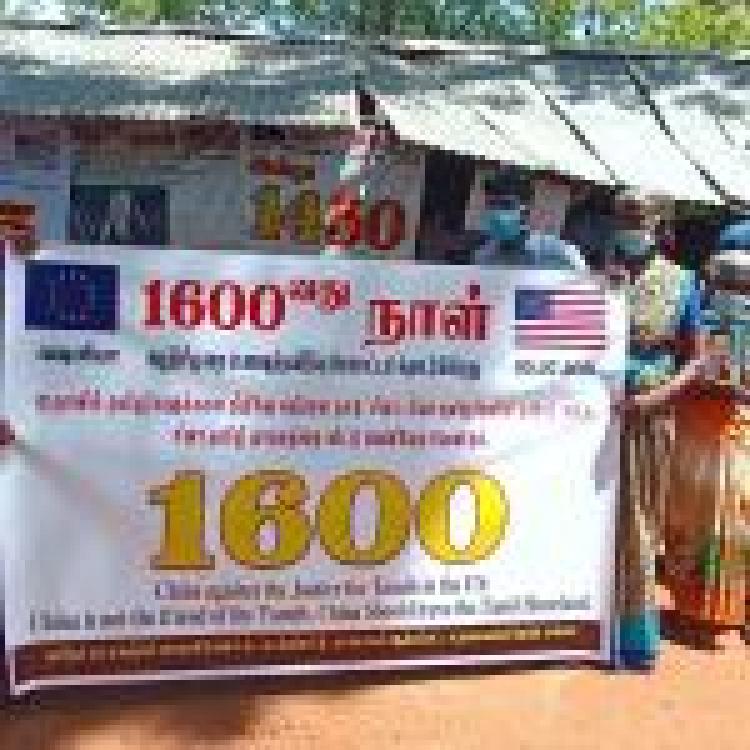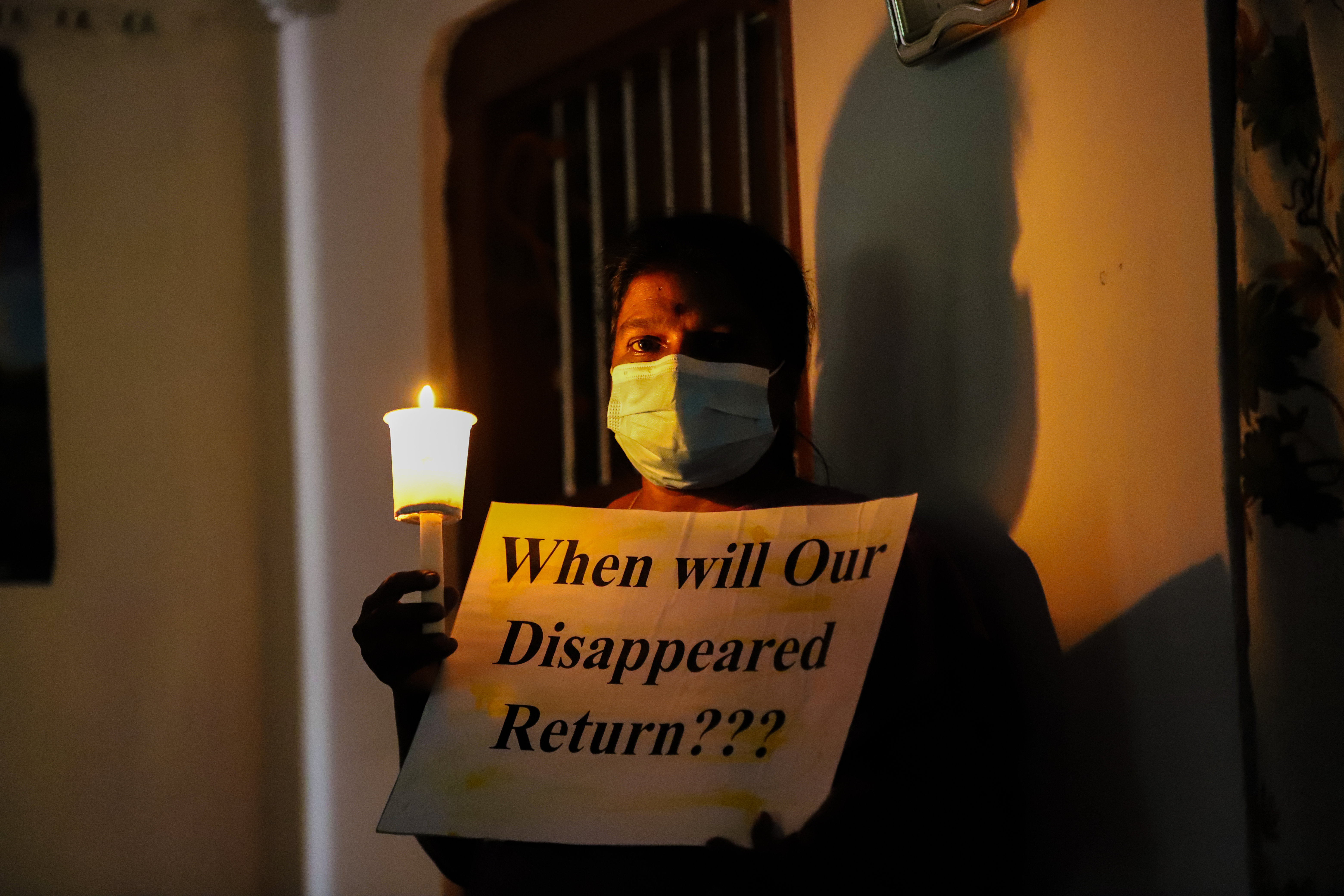
Marking International Day for the Victims of Enforced Disappearances, the Association for Relatives of the Enforced Disappearances have called on UN High Commissioner, Michelle Bachelet, to reject the Sri Lankan Government’s Office of Missing Persons (OMP) and instead pursue an international inquiry into the fate of those forcibly disappeared.
In their statement, the families of the disappeared, detailed the dire situation in Sri Lanka with over a decade passing since the end of the armed conflict and still no account for their missing loved ones. Sri Lanka has the world’s second-highest number of cases registered with the United Nations Working Group on Enforced or Involuntary Disappearances. An estimated 100,000 people have been forcibly disappeared. Whilst such disappearances affect all communities on the island, the vast majority of victims, particularly during the final phase of the war, were Tamil.
It has been 1,635 days since the Tamil families began their roadside protests across the eight districts in the North-East. Over the years, over a hundred participants in these protests have died without learning the fate of their loved ones. Due to the state-imposed lockdown, these families chose to continue their protest at home, lighting lamps.
The letter demands that justice be delivered “before we too die”.
Where are our children?
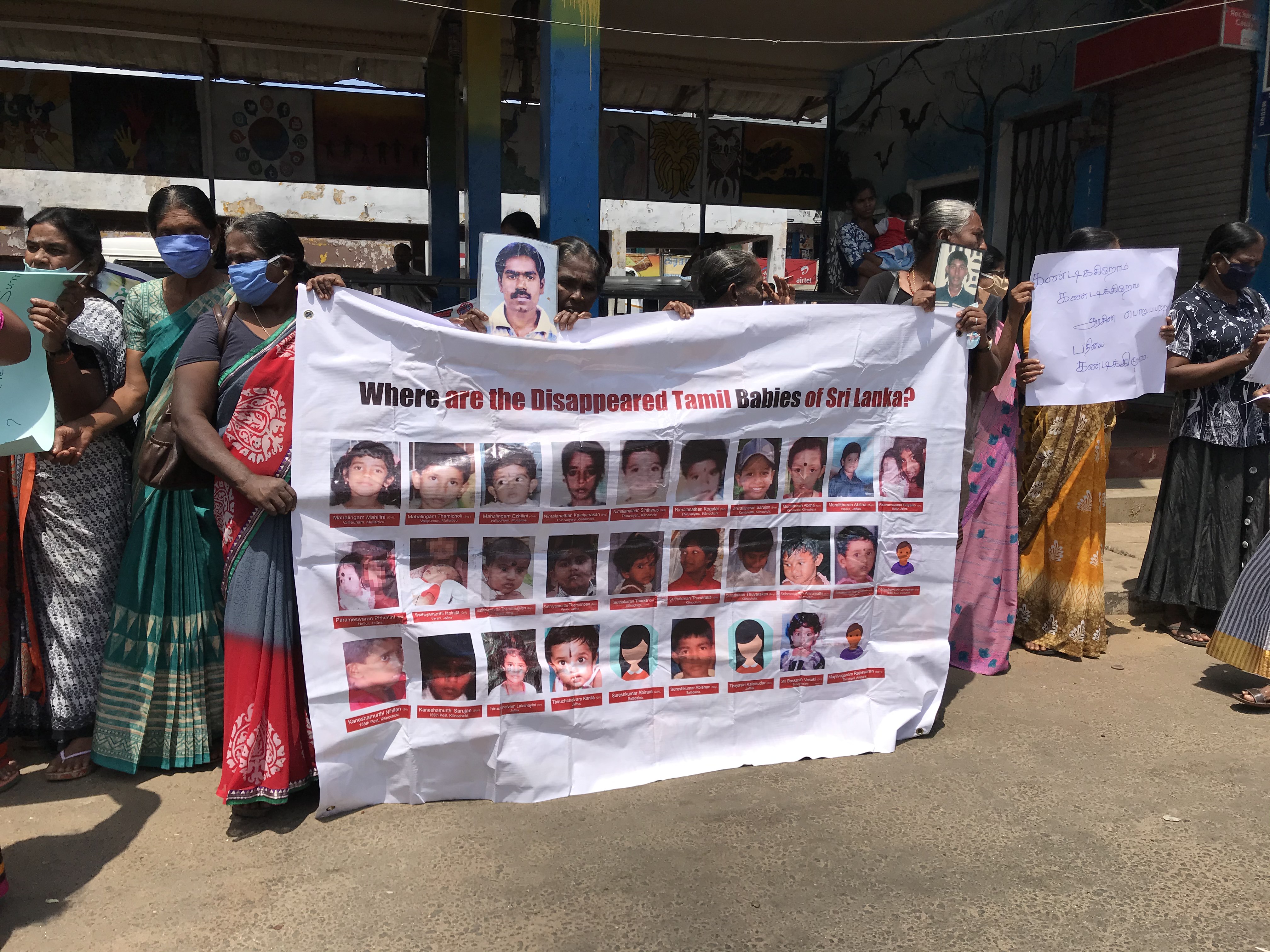
In the letter, the organisation details how family members of the disappeared, including children, were last seen detained by the military during the final stages of the conflict.
“How can we accept the claim by the President of Sri Lanka that no one is alive, we [...] had been eyewitnesses when our loved ones were handed over to the Sri Lankan army in 2009?” the statement reads.
They further added:
“The same person to whom we handed over our relatives, has become the President of Sri Lanka now”.
In their statement, they further called upon children organisations such as UNICEF, Children Fund, and Save the Children to ask what steps they had taken to rescue their children.
Last year UNICEF faced intense criticism after it decided to collaborate with the war crimes accused Sri Lankan Prime Minister, Mahinda Rajapaksa to produce a video for children on the coronavirus.
Abolish the OMP
In their statement, the association further detailed the failings of the OMP and how it did not gain the support of families of the disappeared. In August 2016, members of Families of the Disappeared took on roles in the government established Consultation Task Force however they grew increasingly disillusioned when in August 2016 parliament passed the OMP bill without considering their recommendations. In December, then-President Maithripala Sirisena refused to meet with the task force and rejected recommendations such as the establishment of a hybrid court.
Read more here: Heeding Victims’ Voices: The Struggle of Tamil Families of the Disappeared in Sri Lanka
Following this refusal, families of the disappeared began their protests and would demonstrate outside these offices. In turn, the government began to open these offices in secret. The letter further details the detailed information they provided to the office but the failure of the OMP to respond to their request.
In their letter, they note that the High Commissioner’s praise for the OMP as a step in the right direction. The High Commissioner has since raised concerns about “recent appointments to the Office of Missing Persons and Office for Reparations”.
In May, former Inspector General of Police, Hapu Arachchige Jayantha Shantha Kumara Wickremaratne was appointed to the Office of Missing Persons despite the widespread outcry.
"It’s hard to make this up – the man who was in charge of three police units named by the United Nations investigation as involved in mass enforced disappearances at the end of the war is now investigating the disappearances himself," commented, Executive Director of the International Truth and Justice Project, Yasmin Sooka.
Human Rights Watch has raised similar concerns noting the “limited progress” of the OMP and its failure to ““win the trust of victim’s families”. They highlight that the appointment of Wickremaratne as well as Upali Abeyrathne, who led last year’s commission seeking to exonerate alleged perpetrators, gravely undermined its independence.
Given the failures of the OMP, the letter asks “Is it reasonable for the UN to abet the Sri Lankan Government to thrust the OMP on us?”
They further add:
“The international community and UN should accept the fact that the OMP is incapable and advise the Sri Lankan Government to abolish the OMP immediately”.
International Justice
Instead, they have called for an international investigation into the genocide in Sri Lanka and to inquire into the fate of their loved ones.
Thambirasa Selvarani, President of the Amparai District Missing Persons' Association, has made a similar call stating that families of the disappeared "don't have any hope in any domestic mechanisms."
"We trust that the International Criminal Court (ICC) is the only solution for justice. We will continue our protests until our demands are met," he added.
Read more here.

